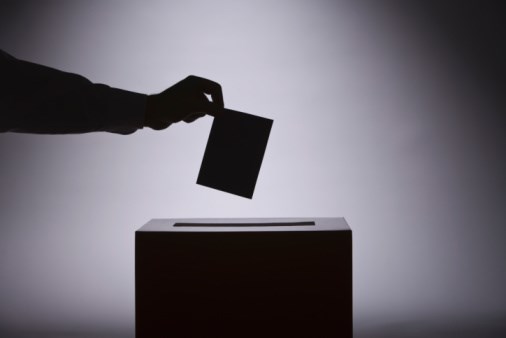Elections B.C. is seeking a B.C. Supreme Court injunction against a political blog for a Facebook post it considers election advertising.
The provincial elections administrator says Poli Buzz Publications Ltd. must register as an election advertising sponsor because it paid for a Facebook post expressing an opinion about the New Democratic Party and Liberal Party during the election campaign period.
The case is raising questions about free expression and advertising in the digital age.
The post, made on or around April 20, was a link to a Vancouver Sun op-ed entitled Opinion: More ‘Vaue-added’ Exports for Forestry Products Hardly Possible or Desirable.
“In this campaign, the B.C. NDP says it wants to eliminate log exports to keep jobs at home, the B.C. Liberals say growing forest products trade beyond the USA is essential. Who’s right? This seems pretty evenhanded,” the post says, before linking to the Sun piece.
The post was “sponsored” by Poli Buzz, which means the blog paid Facebook to promote it.
“It wasn’t the opinion piece that was the advertisement, it was the sponsored post on Facebook that included that piece,” said Nola Western, Elections B.C. deputy chief electoral officer for funding and disclosure.
“News articles, editorials, that sort of thing are not election advertising. But if you pay Facebook and you post a piece that promotes or opposes, directly or indirectly, a political party or candidate, that is election advertising.”
The rules mean some people don’t realize they’re involved in election advertising, Western said.
“It’s not unusual for a third-party group, or even an individual, to inadvertently conduct election advertising without knowing the rules,” she said.
However, it is “very unusual” that Poli Buzz has not registered after repeated requests from Elections B.C., she said. It has submitted only one incomplete registration form.
Kenneth Justin Ming-Ting Chan, who is named as a Poli Buzz director in the petition, said he knew nothing of the case when reached by phone. He said he would not comment, but said he is familiar with Poli Buzz.
Poli Buzz did not respond to two emails requesting comment.
The last Polibuzz.com blog post was made on May 8, the day before the general election.
In January, the Supreme Court of Canada upheld the B.C. law that forces people to register before sponsoring political advertising during a provincial election, even when little money is spent.
But it made clear that the law doesn’t apply to someone who wears a T-shirt with a political slogan or slaps a bumper sticker on a car.
Section 239 of the province’s Election Act requires sponsors of election advertising during a campaign period to register their name, phone number and address with B.C.’s chief electoral officer.
Failure to register could result in a year behind bars and fine up to $10,000.
The B.C. Freedom of Information and Privacy Association, which launched the court challenge, is advocating for an exemption for those spending less than $500 on election advertising.
Executive director Vincent Gogolek said the existing rules put a chill on free expression.
“If you’re a regular person or a small group, unless you’re actually spending money that’s more than pocket change, you shouldn’t be registering,” he said.
He pointed to a 2010 survey of “small spenders” such as non-profits and charities by the Canadian Centre for Policy Alternatives. It found more than one in four participant groups self-censored during the election period, because of the rules.
Gogolek said the group was disappointed that B.C. Attorney General David Eby’s proposed changes to the Elections Act, introduced in September, did not include a floor for advertising spending.
Micheal Vonn, policy director for the B.C. Civil Liberties Association, echoed his concerns.
“When you talk about election advertising constraints, invariably what people think is, well we can’t let people show up with $1 million and distort the public’s view,” Vonn said.
A ceiling on spending prevents that from happening. But there also needs to be a basement, Vonn said, so that ordinary citizens and small groups aren’t branded election advertising sponsors just for expressing their views.



